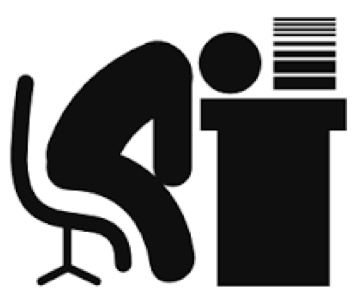Procrastination Can Be Good (Featured on The Straits Times – 16 August 2016)
 Procrastination Can Be Good – Fuel your originality by putting things off
Procrastination Can Be Good – Fuel your originality by putting things off
In our fast-paced society, we are so used to the mantra that you need to have a perfect plan and execute it accordingly to the timeline and direction. But there are a few ways to ensure procrastination works for, and not against, you.
BENEFITS OF PROCRASTINATION
In fact, research shown that by sticking rigidly to a strategy might not work for us in some instance. Let us first define procrastination. In ancient Egypt, there were two different verbs for procrastination: one refers to laziness; the other means waiting for the right time.
I like the latter meaning. When we procrastinate, we are intentionally delaying work that needs to be done. We might be thinking about the task, but we postpone making any real progress and instead, we do something else less important.
When we are putting off a task, we are in fact buying ourselves some time to engage in divergent thinking rather than settling strictly on one particular idea, or getting into what we call a premature idea.
As a speaker, I often create my speech and sit on it, coming back to it intermittently. Each time, the ideas get more concrete and creative. To most people, this might seem unproductive, but the reverse is true. Procrastination can help to achieve an even better outcome at times.
For example, Leonardo Da Vinci spent about 15 years developing the ideas for his famous painting – The Last Supper, while working on a variety of other projects. The speech, “I have a dream” by Martin Luther King, Jr., was formed only on the day itself in the wee morning after multiple revisions. In fact, King was still revising it just before he stepped on the stage.
To procrastinate productively, there are three areas to look out for.
1. IT NEEDS TO BE INTENTIONAL
You must have something in mind, be it a project or outcome, and you must also have a high intrinsic motivation for completing the project. Procrastination will not work if you just want to put things off because you do not like doing them.
2. BE AWARE OF THE FIRST-MOVER TRAP
We often want to be first-mover in everything because we think we have an advantage. One venture capitalist, after being involved in more than one hundred start-ups discovered that timing accounted for 42 per cent of the difference between success and failure. 47 percent of first-mover was about six times more likely to fail than the second-movers.
The reason is that second-mover learns from the mistakes made by the first-mover and calibrate his or her market strategies accordingly. In fact, when a first-mover startup does survive, it captured an average of only 10 percent of the market compared to 28 percent for second-mover start-up.
Moving first is a tactic and not a goal. It is good at times to procrastinate and become a second-mover.
3. THE ZEIGARNIK EFFECT
One of the reasons why procrastination can be useful is due to one of the findings by Russian psychologist, Bluma Zeigarnik in 1927. He discovered that we have a better memory for incomplete than complete tasks.
Once a job is completed, we stop thinking about it. But if it is left undone, it continues to stay in our minds. This is why It makes sense to not conclude a meeting, but pose a question to the attendees, because this will keep them thinking.
To make the best use of procrastination, avoid rushing into things just because you want to be the first-mover, and leverage on the Zeigarnik effect to generate answers to an unsolved question. You might be surprised with the answer that came later rather than sooner.
Article by:
Joseph Wong, the behavioral transformation coach and leadership influence expert of TrainingGearAsia Pte Ltd. He is an author and thought-provoking professional speaker and master trainer on topics of influence, leadership and performance at work. Email him at influence@traininggearasia.com






